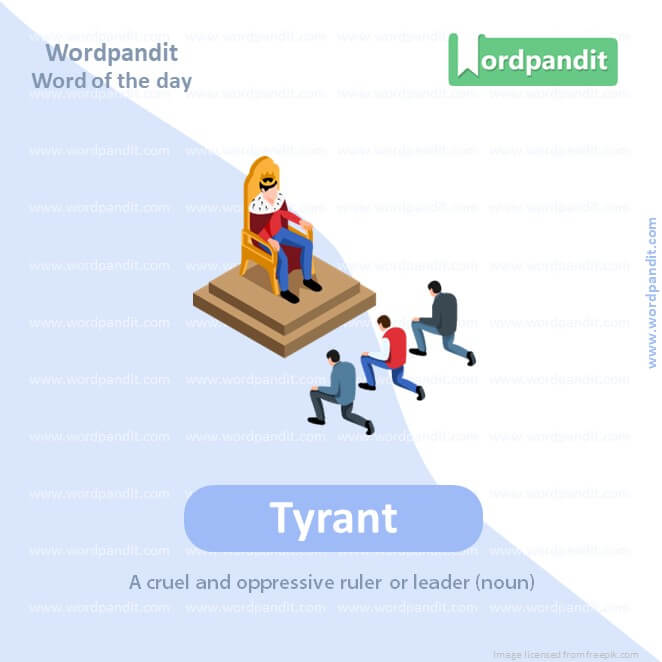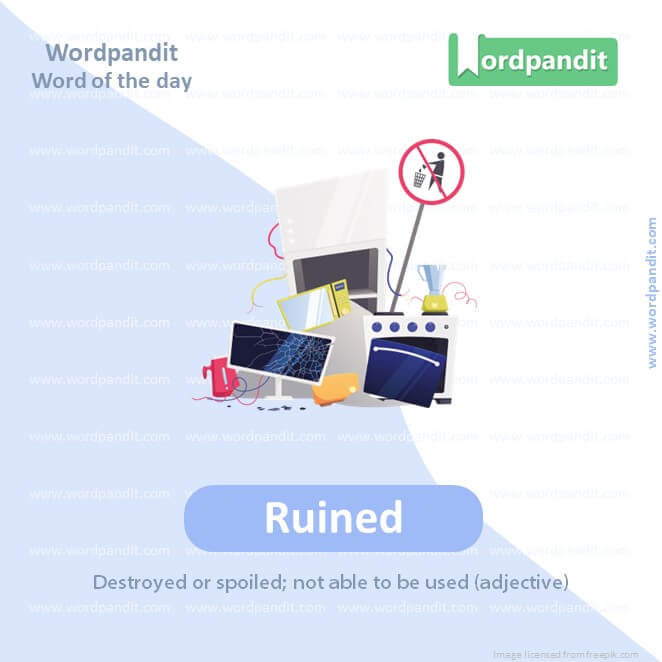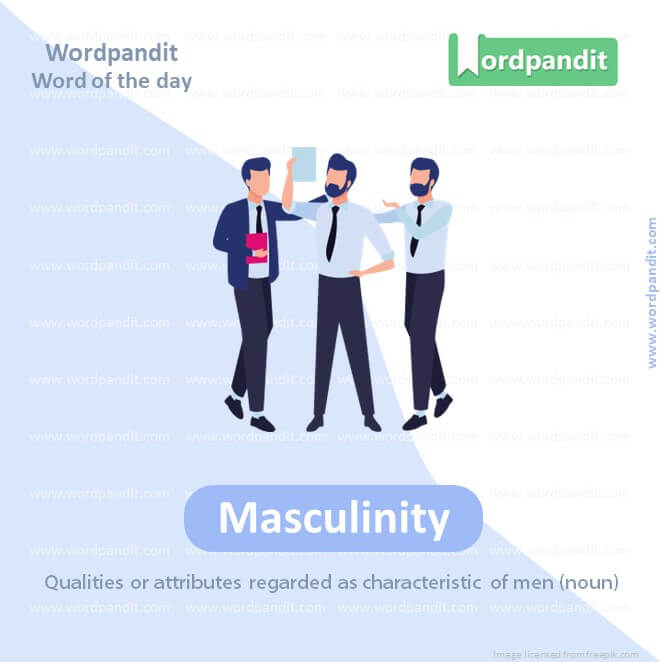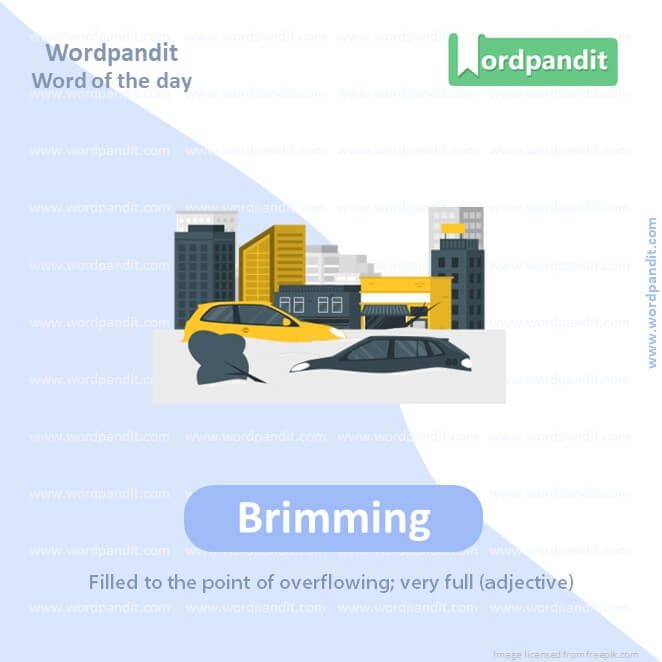Daily Vocabulary Words: List of Daily Used Words in Leading International Newspapers
Hi there. Welcome to this special section @ Wordpandit.
Our endeavour here is very simple: to highlight important daily vocabulary words, which you would come across in leading newspapers in the country. We have included the following newspapers in our selection:
• The New York Times
• The Washington Post
• Scientific American
• BBC
• The Guardian
• Psychology Today
• Wall Street Journal
• The Economist
We are putting in extensive work for developing your vocabulary. All you have got to do is be regular with this section and check out this post on a daily basis. This is your repository of words that are commonly used and essentially, we are posting a list of daily used words. Hence, this has significant practical application as it teaches you words that are used commonly in leading publications mentioned above.
Visit the website daily to learn words from leading international newspapers.

WORD-1: Tyrant
CONTEXT: It’s lonely at the top. There are reasons for that. Long ago and far away, in the middle of the 5th-century BC, in a city on the Aegean in what has become Turkey, Herodotus told a story in his Histories. He wrote about Thrasybulus, the tyrant of Miletus, who took an ambassador from Corinth on a walk through the country. His conversation was meaningless, but his actions were not. “He kept cutting off all the tallest ears of wheat which he could see, and throwing them away, until the finest and best grown part of the crop was ruined.” To the tyrant in Corinth, it was obvious what Thrasybulus was up to. “He recommended the murder of all the people in the city who were outstanding in influence or ability.”
SOURCE: Psychology Today
EXPLANATORY PARAGRAPH: A tyrant is like a very mean leader or boss who is unfair and makes people do things they don’t want to do. They don’t care about being kind.
MEANING: A cruel and oppressive ruler or leader (noun)
PRONUNCIATION: tie-rant
SYNONYMS: Dictator, Despot, Oppressor, Autocrat, Bully
USAGE EXAMPLES:
1. The story was about an ancient tyrant who ruled with fear.
2. People often rebel against a tyrant.
3. In the movie, the tyrant was overthrown by the heroes.
4. The tyrant made unfair laws.

WORD-2: Ruined
CONTEXT: It’s lonely at the top. There are reasons for that. Long ago and far away, in the middle of the 5th-century BC, in a city on the Aegean in what has become Turkey, Herodotus told a story in his Histories. He wrote about Thrasybulus, the tyrant of Miletus, who took an ambassador from Corinth on a walk through the country. His conversation was meaningless, but his actions were not. “He kept cutting off all the tallest ears of wheat which he could see, and throwing them away, until the finest and best grown part of the crop was ruined.” To the tyrant in Corinth, it was obvious what Thrasybulus was up to. “He recommended the murder of all the people in the city who were outstanding in influence or ability.”
SOURCE: Psychology Today
EXPLANATORY PARAGRAPH: ‘Ruined’ means something is broken or damaged so badly that it can’t be used anymore. Like when a toy is so broken that you can’t play with it.
MEANING: Destroyed or spoiled; not able to be used (adjective)
PRONUNCIATION: roo-ind
SYNONYMS: Wrecked, Destroyed, Damaged, Spoiled, Devastated
USAGE EXAMPLES:
1. The old house was completely ruined.
2. The rain ruined our picnic plans.
3. His favorite book was ruined by water.
4. The castle lay in ruins for centuries.

WORD-3: Exiling
CONTEXT: A century later, Aristotle, who quoted Herodotus, got the point. In his Politics, he wrote: “Tyrants have borrowed the art of making war upon the notables and destroying them secretly or openly, or of exiling them because they are rivals and stand in the way of their power.” In short: “The prominent citizens must always be made away with.”
SOURCE: Psychology Today
EXPLANATORY PARAGRAPH: Exiling is like being sent away from your home or country, usually as a punishment, and not being allowed to come back for a long time.
MEANING: The act of banishing someone from their home or country (verb)
PRONUNCIATION: ex-eye-ling
SYNONYMS: Banishing, Expelling, Deporting, Ousting, Evicting
USAGE EXAMPLES:
1. The king was exiling his enemies from the kingdom.
2. They were exiling the criminal to a distant island.
3. Exiling people was a common punishment in old times.
4. He feared being exiled from his homeland.
WORD-4: Prominent
CONTEXT: A century later, Aristotle, who quoted Herodotus, got the point. In his Politics, he wrote: “Tyrants have borrowed the art of making war upon the notables and destroying them secretly or openly, or of exiling them because they are rivals and stand in the way of their power.” In short: “The prominent citizens must always be made away with.”
SOURCE: Psychology Today
EXPLANATORY PARAGRAPH: Prominent is when something is very important, famous, or easy to see. Like when a building is much bigger than others around it or a person who everyone knows.
MEANING: Well-known, important, or easy to notice (adjective)
PRONUNCIATION: prom-i-nent
SYNONYMS: Distinguished, Notable, Conspicuous, Eminent, Outstanding
USAGE EXAMPLES:
1. She is a prominent figure in politics.
2. The mountain was a prominent landmark.
3. He played a prominent role in the project.
4. Her article was published in a prominent magazine.
WORD-5: Rehashed
CONTEXT: Three centuries later, Livy, who taught the Roman emperor Claudius, and probably had read Aristotle or Herodotus, rehashed that advice. In Ab Urbe Condidta, his history “From the Founding of the City,” he had Tarquin, the last of the Roman kings, respond to another ambassador from Gabii, who wanted to know how to secure power. “He said not a word in reply to his question, but with a thoughtful air went out into his garden. The man followed him, and Tarquin, strolling up and down in silence, began knocking off poppy heads with his stick.”
SOURCE: Psychology Today
EXPLANATORY PARAGRAPH: Rehashed is like using old ideas or things and making them seem new again. It’s like telling the same story but with little changes.
MEANING: Presented old ideas or material again but in a slightly different way (adjective)
PRONUNCIATION: ree-hashd
SYNONYMS: Recycled, Repeated, Redone, Reused, Repackaged
USAGE EXAMPLES:
1. The movie was just a rehashed version of an old story.
2. His speech sounded like a rehashed idea from earlier talks.
3. The article was criticized for being rehashed content.
4. She was tired of rehashed fashion trends.

WORD-6: Masculinity
CONTEXT: The concept of toxic masculinity has received considerable attention in the past few years following the #Me-Too movement and various exposés of bro cultures, notably in the tech industry. But what exactly is toxic masculinity?
SOURCE: Psychology Today
EXPLANATORY PARAGRAPH: Masculinity means qualities or things that are often thought to be typical of boys or men, like being strong or brave.
MEANING: Qualities or attributes regarded as characteristic of men (noun)
PRONUNCIATION: mas-kyoo-lin-i-tee
SYNONYMS: Manliness, Virility, Strength, Manhood, Toughness
USAGE EXAMPLES:
1. The book discussed different views of masculinity.
2. There’s more to masculinity than just being strong.
3. He felt pressure to conform to traditional masculinity.
4. The movie explores the theme of masculinity in modern society.
WORD-7: Grasping
CONTEXT: The concept seems challenging to define, but much like the Supreme Court definition of hard-core pornography, you probably know it when you see it. There are many attempts at definitions, but they are typically overcomplicated or fall short of grasping the essence of toxic masculinity.
SOURCE: Psychology Today
EXPLANATORY PARAGRAPH: Grasping is like trying very hard to hold or get something, especially things like money or power. It’s like grabbing things you want without caring about others.
MEANING: Eagerly and often dishonestly trying to get and keep something (adjective)
PRONUNCIATION: gras-ping
SYNONYMS: Greedy, Avaricious, Covetous, Acquisitive, Clutching
USAGE EXAMPLES:
1. The character in the story was a grasping villain.
2. Her grasping nature led her to cheat.
3. They criticized his grasping attempts at gaining power.
4. The grasping businessman was disliked by many.

WORD-8: Brimming
CONTEXT: By now, you’re probably aware that spending too much time staring at digital screens can harm your health. The internet is brimming with studies linking prolonged screen use with obesity, cardiovascular disease, sleep disorders, myopia, and more.
SOURCE: Psychology Today
EXPLANATORY PARAGRAPH: Brimming is when something is so full that it almost overflows, like a cup filled with water right to the top.
MEANING: Filled to the point of overflowing; very full (adjective)
PRONUNCIATION: brim-ing
SYNONYMS: Overflowing, Full, Teeming, Abundant, Laden
USAGE EXAMPLES:
1. Her eyes were brimming with tears of joy.
2. The basket was brimming with fresh fruit.
3. The room was brimming with excited guests.
4. The garden was brimming with flowers.
WORD-9: Prolonged
CONTEXT: By now, you’re probably aware that spending too much time staring at digital screens can harm your health. The internet is brimming with studies linking prolonged screen use with obesity, cardiovascular disease, sleep disorders, myopia, and more.
SOURCE: Psychology Today
EXPLANATORY PARAGRAPH: Prolonged means something lasts for a very long time, longer than expected. Like when playtime feels like it’s going on forever.
MEANING: Continuing for a long or extended time (adjective)
PRONUNCIATION: pro-longd
SYNONYMS: Extended, Lengthy, Drawn-out, Long-lasting, Protracted
USAGE EXAMPLES:
1. The city experienced a prolonged period of rain.
2. His recovery from the illness was prolonged.
3. There was a prolonged silence after the announcement.
4. The meeting was prolonged due to disagreements.
WORD-10: Ubiquitous
CONTEXT: But screens are ubiquitous, and as a species, we’re only becoming more dependent on them. Many of our careers require spending a third of our waking hours in front of a computer, and we often spend our leisure hours engaging with social media, streaming movies or TV shows, and reading digital publications. So, what can we do to stave off the ill effects?
SOURCE: Psychology Today
EXPLANATORY PARAGRAPH: Ubiquitous means something is everywhere, all around you. Like if you see the same kind of bird everywhere you go.
MEANING: Found everywhere; very common or widespread (adjective)
PRONUNCIATION: yoo-bik-wi-tus
SYNONYMS: Omnipresent, Pervasive, Universal, Prevalent, Commonplace
USAGE EXAMPLES:
1. Smartphones are now ubiquitous in modern society.
2. Coffee shops are ubiquitous in the city.
3. The song became ubiquitous on the radio.
4. The use of plastic is ubiquitous around the world.
Vocabulary Spelling
In the rich tapestry of language learning, getting the ‘vocabulary spelling’ right forms a significant thread. These spelled words or the arrangement of letters give each word its unique identity. However, understanding ‘vocabulary spelling’ proficiently needs an insightful and strategic approach.
Starting the journey of learning ‘vocabulary spelling’, one must focus on observing patterns. English language words often follow certain spelling rules or patterns. Recognizing these can simplify the learning process, offering a systematic way to appreciate ‘vocabulary spelling’.
The trick to ingraining ‘vocabulary spelling’ effectively lies in the power of repetition. Regularly writing words can help reinforce the spelling in your memory. To boost this, tools like spelling quizzes or flashcards with the word on one side and the spelling on the other can provide an engaging way to practice ‘vocabulary spelling’.
An unconventional yet powerful approach to remember ‘vocabulary spelling’ is by using mnemonic devices. For instance, connecting the word’s spelling with a catchy phrase or rhyming pattern can make recall easier.
Integrating technology with learning ‘vocabulary spelling’ has its unique benefits, too. Apps offer various exercises and tests that not only enhance memory but also make learning fun.
Importantly, the learning of ‘vocabulary spelling’ should be punctuated with regular revisions. This ensures the recalled spelling is correct and cements it in your long-term memory.
In a nutshell, mastering ‘vocabulary spelling’ requires keen observation, regular practice, innovative mnemonic tools, use of technology, and timely revisions. As you follow this comprehensive path, you strengthen your grasp over ‘vocabulary spelling’, paving the way to language proficiency. Remember, every word spelled correctly is a moment of triumph in the enthralling escapade of language learning!













